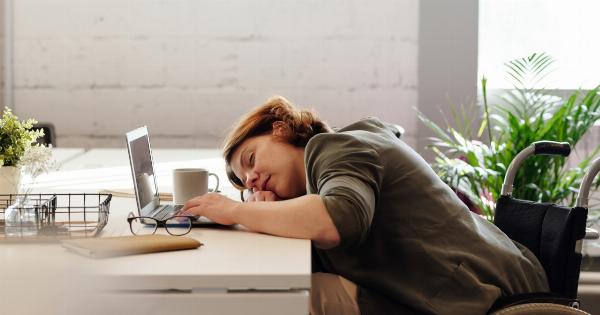Sleep apnea is a sleep disorder characterized by repeated pauses in breathing during sleep. These pauses can last from a few seconds to a few minutes and can occur multiple times throughout the night.
As a result, people with sleep apnea often experience poor quality sleep and daytime sleepiness.
While the link between sleep apnea and daytime fatigue is well-established, research has also shown a relationship between sleep apnea and memory loss.
In this article, we will explore this connection and provide some tips for managing sleep apnea to improve your memory.
What is Sleep Apnea?
Sleep apnea is a common sleep disorder that affects millions of people worldwide. There are three types of sleep apnea:.
- Obstructive sleep apnea (OSA): This is the most common type of sleep apnea. It occurs when the muscles at the back of the throat fail to keep the airway open during sleep, causing a blockage.
- Central sleep apnea (CSA): This type of sleep apnea is caused by a failure of the brain to send the appropriate signals to the muscles that control breathing during sleep.
- Complex sleep apnea syndrome (CSAS): This is a combination of obstructive sleep apnea and central sleep apnea.
Regardless of the type of sleep apnea, the repeated pauses in breathing during sleep cause a decrease in oxygen levels in the blood and can lead to a variety of health problems.
What are the Symptoms of Sleep Apnea?
The symptoms of sleep apnea can vary depending on the severity of the condition. Some common symptoms include:.
- Loud snoring
- Pauses in breathing during sleep (reported by a bed partner)
- Excessive daytime sleepiness
- Difficulty concentrating
- Irritability
- Depression
- Headaches
If left untreated, sleep apnea can lead to high blood pressure, heart disease, stroke, and other health problems.
The Link Between Sleep Apnea and Memory Loss
Research has shown that sleep apnea can have negative effects on brain function, including memory.
A study published in the journal Sleep found that people with sleep apnea had lower scores on tests of memory and other cognitive functions compared to people without the condition.
Another study published in the journal Neurology found that people with severe sleep apnea were more likely to develop mild cognitive impairment, a condition that can be a precursor to Alzheimer’s disease.
So, how does sleep apnea affect memory? One theory is that the repeated drops in oxygen levels during sleep cause damage to the brain’s hippocampus, a region of the brain that is important for memory and learning.
As a result, people with sleep apnea may experience memory problems and difficulty learning new information.
Managing Sleep Apnea to Improve Memory
If you suspect that you have sleep apnea, it’s important to see a healthcare professional for evaluation and treatment. Some treatment options for sleep apnea include:.
- Continuous positive airway pressure (CPAP): This is a device that delivers a constant stream of air through a mask worn over the nose and/or mouth. The air pressure helps to keep the airway open during sleep.
- Oral appliances: These devices are fitted by a dentist or orthodontist and are designed to keep the airway open during sleep.
- Surgery: In some cases, surgery may be recommended to remove excess tissue from the throat or to reposition the jaw.
In addition to these treatment options, there are also several lifestyle changes that can help improve sleep apnea symptoms and potentially improve memory:.
- Maintain a healthy weight: Excess weight can contribute to sleep apnea, so maintaining a healthy weight through diet and exercise can be helpful.
- Avoid alcohol and sedatives: Both alcohol and sedatives can relax the muscles in the throat, making sleep apnea worse.
- Sleep on your side: Sleeping on your back can make sleep apnea worse, so try sleeping on your side instead.
- Practice good sleep hygiene: Stick to a consistent sleep schedule, avoid caffeine and electronics before bedtime, and create a comfortable sleep environment.
Conclusion
Sleep apnea is a common sleep disorder that can have negative effects on brain function, including memory. If you suspect that you have sleep apnea, it’s important to see a healthcare professional for evaluation and treatment.
By managing sleep apnea with medication, lifestyle changes, and/or devices such as CPAPs or oral appliances, you can potentially improve not only your quality of sleep but also your memory and overall brain function.































